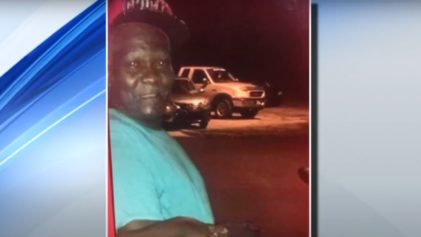The outrage in the Black community over police brutality has blossomed in recent months after several high-profile deaths, but after the handwringing and protesting, a key question remains: How to make it stop?
Activists in cities across the country may have come up with an answer to that question: By throwing data at the problem.
Durham, North Carolina, is ground zero for this new use of data to control the police and protect Black people, according to an investigation by the New York Times.
Activists in Durham were distraught last year when a Latino youth died from a gunshot as he sat handcuffed in the back of a police cruiser. As the Times describes it, there were 150 demonstrators surrounding Durham Police Headquarters, shouting things like “murderers” as baton-wielding officers in riot gear fired tear gas, a scene we saw repeated in Ferguson this summer.
The protesters saw the police shooting as just another example of how police in this city of 245,000 consistently abuse people of color. Dominated by Duke University, Durham is nearly equally split between white (42 percent) and Black (40 percent), with 14 percent Hispanic.
As an example, the Times cited the case of a Black female Navy veteran who was beaten by a police officer after telling a friend she was visiting that the friend did not have to let the police search her home.
But beyond the demonstrations, a coalition of ministers, lawyers and community and political activists decided to use data. They got their hands on an analysis of state data from 2002 to 2013 revealing that Durham police searched Black male motorists at more than twice the rate of white males during stops—yet drugs and other illicit materials were found no more often on Blacks.
In response to the numbers, city officials instituted a progressive new law requiring police to get written consent to search vehicles in cases where they do not have probable cause. Drivers are told on the forms—which come in English and Spanish—that they do not have to allow the searches.
“Without the data, nothing would have happened,” Steve Schewel, a Durham City Council member who pushed for the change, told the Times.
The Durham example provides a template for Black communities across the nation who are looking for ways to transform the relationship between the police and the community—or at the very least, try to protect the community from abuse and even death.
Cities like Austin in Texas and Kalamazoo in Michigan have caught onto this wave, in recent years requiring consent for searches. The change came in Austin after an independent police monitor reported that police searched Blacks one in every eight stops, while whites were searched one in every 28 stops. Kalamazoo’s data revealed that Black drivers were nearly twice as likely to be stopped, and then “much more likely to be asked to exit their vehicle, to be handcuffed, searched and arrested.”
Requiring Kalamazoo officers to explain to their supervisors what “reasonable suspicion” they had for every search dropped traffic stops by 42 percent, while the city’s crime rate has fallen 7 percent, according to the Times.
“It really stops the fishing expeditions,” Kalamazoo public safety Chief Jeff Hadley told the Times. He said the stats demoralized his officers, but not the Black community.
“I thought they would be up in arms, but they said: ‘You’re not telling us anything we didn’t already know. How can we help?’ ” he said.
The Center for Policing Equity has created a database of traffic stop and search data, and thus far more than 50 police departments have said they will provide data, the Times reports. This would provide activists and community leaders across the nation with a means of responding to the inequality in their communities—and would put police departments on notice that they better monitor the inequality of stops and arrests if they want to keep away the protesters and the lawsuits.
A USA Today report this week showed just how severe the racial imbalance is across the country: In most of the 1,581 police departments analyzed by the publication, Blacks are arrested at rates more than three times that of whites—and at least 10 times more than whites in at least 70 cities.
Activists in Durham hoped written consent to search would reduce racial disparities and end coercive tactics that the police used to search even in the absence of true, willing consent.
“We were shaming them, and saying, ‘We’re tired of you all talking about how progressive Durham is,’” said Ian A. Mance, a lawyer for the Durham-based Southern Coalition for Social Justice, part of the broader group that pushed to reduce the imbalance in searches.
Durham’s police chief, Jose Lopez, who is Puerto Rican, said the data showed a high number of Blacks being stopped because police had been instructed by city leaders to focus more attention on high-crime areas, which in many cases were predominantly Black.
“Think about this,” Chief Lopez told the Times. “You have a Puerto Rican police chief in the City of Durham, and you are going to accuse him of racism?”
“The pendulum has swung from ‘We trust the police’ to ‘We don’t trust what you say, and you better prove it to us,’ ” Chief Lopez said. “Every police department right now is either putting together data or looking for ways to enhance it, or looking for funding, in order to get on the metric bandwagon as a way of being able to explain what they do and why they do it, and also to prove they’re not doing what they are accused of doing.”



